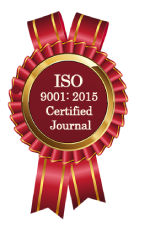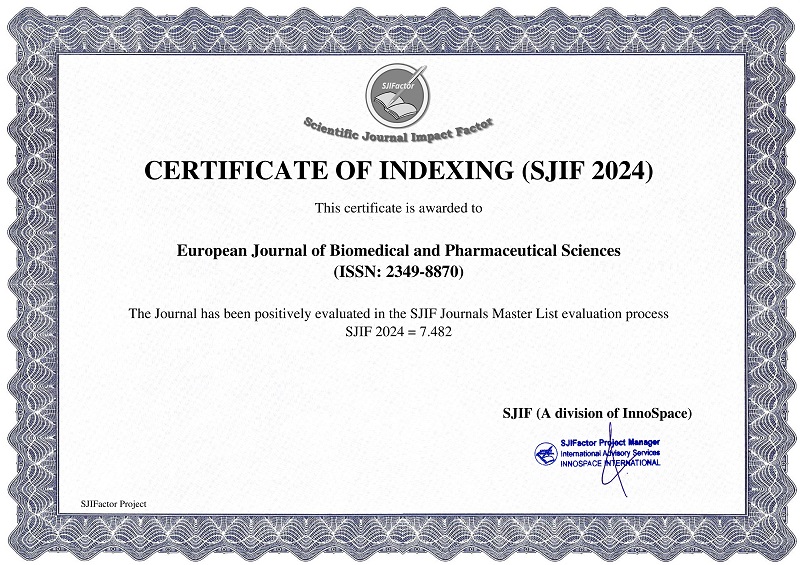HORMONES INFLUENCING TUMOR PROGRESSION IN POSTMENOPAUSAL BREAST CANCER WOMEN
Hajira Fatima, Kaiser Jamil* and Dr. Suryanarayana Raju
ABSTRACT
This study systematically unfolds the various genetic and hormonal risks involved in breast cancer development in post-menopausal women who underwent reproductive surgeries. The breast cancer patients had higher hormonal levels (estrogen and progesterone). A 9.3 fold and 2.5 fold increased risk of breast cancer was found in women who had undergone reproductive surgeries like tubectomy and hysterectomy respectively before menopause. The PCR studies of the hormone regulating genes like ESR1 and PROGINS showed that ESR1 PvuII genotypes had a 2.2 folds higher risk in heterozygous genotypes and 3 folds increase in risk for the combined genotypes of ESR1 PvuII (TC/CC). Whereas ESR1 XbaI genotypes showed 4.4 fold increase in heterozygous allele AG and the risk for homozygous mutant allele GG also increased, interestingly the homozygous mutants were conspicuously absent in controls. The correlation study for both ESR1 PvuII and XbaI genotypes, showed a significant association between increased hormone levels in tubectomised cases. Polymorphism in PROGINS showed heterozygous Pp genotypes were significantly associated with a calculated risk of 6.7 folds increase in breast cancer. Correlation studies of Pp genotypes showed significant association with reproductive surgeries and serum progesterone levels, which was higher. It is concluded that reproductive surgeries may modulate the estrogen and progesterone levels in women. This may lead to mutations in the hormone regulating genes like ESR1 and PROGINS. And the polymorphic nature of these genes in turn could lead to the significant increase in hormonal levels in post-menopausal breast cancer patients, further aggravating the disease.
Keywords: Breast Cancer, Estrogen, Progesterone, Estrogen receptor-alpha (ESR1) gene and PROGINS.
[Full Text Article]
[Download Certificate]


 Impact Factor : 8.181
Impact Factor : 8.181 






